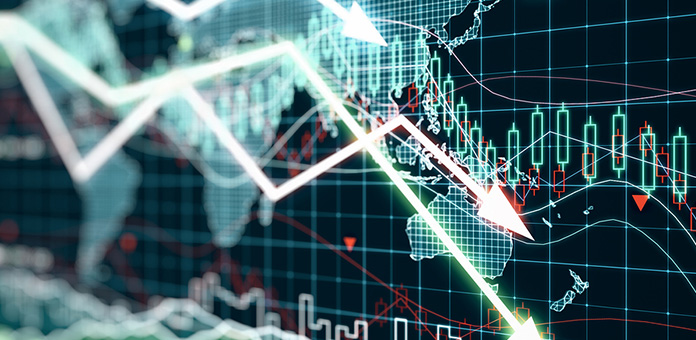
A recession is coming, says Donald Trump. Politicians, economists, and journalists echo the presidential candidate’s sentiment. It’s true in every sense of the word that what goes up will always come down, and vice-versa. Yet, once you get around the iron laws of capitalism’s boom and bust cycles, the nuances of predicting when and where the dips and peaks occur become far more tricky. After the market’s horrific start to the year, doomsayers appeared to have the truth of it; now that the market has rebounded and is only a tick below its asking price last year, moderation may appear wise. What are the facts and the fallacies of an upcoming recession?
Global Debt Crises
In many ways, almost all the news you hear about debt is bad: too much lending, too much interest, too little repayment. It’s easy to forget that the United States has only ever had a balanced budget once, and balancing the budget put the economy into shambles for half a decade. 1 Most economists today agree that debt isn’t just necessary, but crucial for a healthy economy. Yet, there can be too much of a good thing, and its symptoms are being felt all over the world. Debt has put the European Union into a tailspin, because many members are able to pay off their own borrowing while others (most notably Greece) are not. Issues of debt have forced Britain to hold an election to determine staying or leaving in the EU (termed the “Brexit“), a move that would likely be disastrous for the global economy. A collapse of the Eurozone would put huge pressure on a delicate U.S. economy.
China’s Balancing Act
Five years ago, all the news articles were about how strong China’s economy was. The truth is that China’s economy is still growing very strong—but five percent growth isn’t the same thing as ten percent growth, to the detriment of many companies that rely on the country’s markets. The downright laughable performance of China’s stock market is a reflection of how little faith anyone has in the country’s spending power. Devaluation of the yuan would further harm U.S. selling power with our largest trade partner, bleeding jobs away that no longer bring in enough money thanks to the imbalance. Current slowdown in China has already put commodities-based economies (notably Australia and Brazil) into recession. Service-based economies could be next.
Employment, or Lack Thereof
“Lies, damn lies, and statistics,” said Mark Twain; they’re all one and the same. It’s by and large true: a fan of the U.S. economy could say that employment under 5% is fantastic, while a cynic could say that the labor force participation rate is at a 40-year low. The latter statistic is worrying. Too many U.S. workers are on part-time or temporary track at the same time that real wages aren’t growing. With such a high percentage of workers in a no-man’s land, the lack of quality jobs represents a serious risk if firms start layoffs or if spending power declines.
Gold—An Asset Class that Survives Recessions

In the face of recession, whether tomorrow or in a decade, any investor needs gold on their side. No other asset class came out ahead in 2008 like cash alternatives—in fact, no other asset class grew at all. Talk with an SBC Gold specialist about how to invest in precious metals to overcome recessions and financial crises whenever they happen to hit.
Additional Sources:
1 – http://www.npr.org/sections/money/2011/04/15/135423586/when-the-u-s-paid-off-the-entire-national-debt-and-why-it-didnt-last

